Introduction
For those of you who haven’t had a chance to read it, I recently wrote a review of a book by Andy Glazer called Casino Gambling the Smart Way. I could understand why readers might not want to read the chapter-by-chapter breakdown, especially if they have no intention of ever getting the book, so feel free to check out that article and look at the, “Introduction,” “Overall Thoughts,” and “Conclusion,” sections.
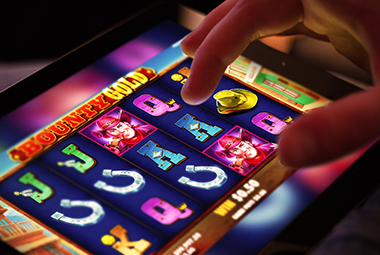
Overall, I thought the book wasn’t too bad, though pretty light on the math.
After some thought, I decided that maybe my Review was slightly (and, I mean, might change my scores by half a point) too critical of the lack of math in that book.
For recreational players, I suspect that many of them don’t particularly care about the math. I would suggest that this is the most true for land casino recreational slot players, as they have no way of knowing what the House Edge/Return to Player is for most of the machines that they are playing. One nice aspect of many online casinos is that this information can be found in the help screen.
With that, I’m going to offer some gambling advice to Recreational Players in this article---which is basically going to take a stab at what Glazer was trying to accomplish.
I tend to think that, as gambling writers, Glazer (R.I.P.) and I have a fairly similar mentality and would have probably gotten along well with one another. More than anything, I think that our goals are for players to understand what they are up against as well as to gamble within their means.
One critique I made of Glazer’s book was an overemphasis on, “Money Management,” which I am going to address in the next section. Another critique was on Glazer’s notion that players should do strange things such as play to win/loss goals and switch casinos after achieving particular win/loss goals in a, “Session,” which I know that Glazer knew does not mathematically impact anything.
In reading this article, I will link to WizardofOdds.com as appropriate, but I am going to keep this as heavy-math light as I possibly can, so you’re going to have to take the House Edges that I cite as granted as true. (If they are on WoO, then they are correct.)
With that, let’s get into some of my Advice for Recreational Gamblers:
MY POSITION
I also want to clarify my position on things a little bit.
Nothing that I write or have ever written should be taken as being meant to tell you how to gamble. My goal is very simple: I want players to be aware of the odds against them and of their Expected Loss simply so that they can make informed decisions as to how to gamble.
Other than side bets, “Any Seven,” is generally the worst bet on the Craps Table. That said, if you want to go to the Table and make nothing but Any Seven bets, by all means, go right ahead!
The House Edge on Any Seven is 16.67%, if you bet $5, then your expected loss is $0.8335 per bet. If you make the bet 100 times, then your expected loss is $83.35.
If you play it, that doesn’t make you stupid. When I call it a, “Stupid bet,” I simply mean that there are much better bets available. If you enjoy making only the Any Seven bet and you look at the Expected Loss per attempt and decide that’s worth it, then go for it.
I don’t play Craps optimally, but I almost never play.
Generally speaking, I will make a $5 Pass Line bet (Expected Loss $0.0705) with a $1 Crap Check (Expected Loss $0.1111) and then, if a Point is Established, I will make a $6 Place Bet (Expected Loss $0.0912, each) on the Six and Eight, unless one of those is the point already. I will then make an Odds bet of 2x Odds (No House Edge) and will make a PLace Six and Place Eight bet of $1 apiece (MY Expected Loss on this is definitely $2) for the dealers.
But, that’s the way I like to play Craps. As you can see above, I know precisely what I am expected to lose on each bet and most of it is in the $2 that I am betting for the dealers anyway.
Why would I make $2 in Toke Bets against such small action?
The answer is because I don’t expect to win anyway. I get more fun out of the dealers thanking me for the Toke bets than I would if I didn’t do that. I would never play Craps if I could not make Toke bets.
Also, I enjoy making the, “Crap Check,” bet. I know it’s a stupid bet. I just happen to think that it’s fun and I like the fact that I can replace my (losing) Pass Line bet with money on the table in the event of a Come Out 2, 3 or 12 without going back to my rack.
That said, I play Craps maybe once or twice per year, on average, and quit playing as soon as I Seven Out. The only way I will keep playing is if I have Established and Made at least three consecutive points prior to Sevening Out, and if that has happened, I can keep going after the next Seven Out and will continue until I Seven Out without Establishing and Making three consecutive points, or more.
Anyway, I’m not saying that a player always has to make the lowest House Edge bets. I certainly don’t, but I almost never play negative expectation games. My take on it is that you’re playing a losing game anyway.
What I don’t want is for people to think that any, “Systems,” “Strategies,” or combinations of bets are going to turn a negative expectation into a positive one. That’s dangerous thinking that can lead to irresponsible gambling, which is something that I really don’t want to see anyone fall into. If you think gambling recreationally is fun, then you should do your level best to make sure it remains fun...and chasing losses might get your adrenaline pumping, but it’s going to seem a lot less fun in a real hurry once you’ve left the casino.
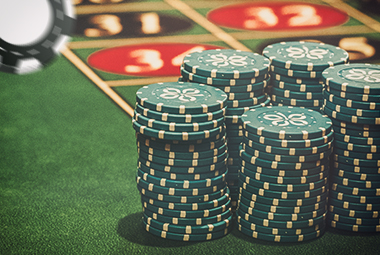
1.) MONEY MANAGEMENT (KIND OF)
One of my complaints about how much time Glazer spent on Money Management is how much of an emphasis that he put on session win and session loss targets.
A player’s expected loss is going to be his total in action multiplied by the house edge of whatever bets he is making. However, players are generally not going to know (ahead of time) how much they are actually going to put in action. In order to know that, a player would have to know exactly how much he/she is going to bet on every single outcome and how many total bets are going to be made.
With that, Money Management (in and of itself) does nothing to change Expected Loss and it doesn’t change the House Edge. However, I only advocate AGAINST Money Management on the, “Stop Win,” side.
It’s not even so much that I advocate against it as much as it is that I understand that recreational players are not robots. I tend to think it would be pretty naive to believe that a player would conceive of playing to a specific win goal and actually achieve quitting when he gets there and be ready to leave.
With that, my advice to players would be to just set hard limits on how much they are willing to lose in a trip, or perhaps you can even break that up into, “Sessions,” and not lose more than that amount.
If you are playing a game that has a negative expectation in the first place, then there’s really no reason to plan for winning because you are not expected to win. The most important thing to do is to simply always play within your means and not lose/risk more than you can afford to risk/lose.
There ARE worse things than losing and there are worse feelings than losing. If you lose the amount that you planned to lose, that sucks, but hopefully you had fun and you can reflect on the fact that you were playing a losing game to begin with. Some players that play negative expectation games MUST have, “Session losses,” or, “Trip losses,” or casinos would not exist. Remember, the Las Vegas Strip did not become the Las Vegas Strip because there are easy ways to win.
What’s worse than losing is losing even more than you planned to lose. Worse than that is losing enough that it actually gets you into trouble, which you can take to mean whatever you want it to mean.
With that, my only pragmatic Money Management advice is to decide on a maximum that you are willing to lose (whether it be a trip, session or period of time) and stick to that. Budget it. Plan to lose it. Consider it as good as gone. And, if you end up winning, that will just make it all the more awesome...now you’ll have the money that you were planning to lose, and then some.
In other words, don’t get it into your head that you’re going to win. Be a pessimist; walk into the casino believing that you are going to lose. After all, that is the expected result.
2.) KNOW YOUR EXPECTED LOSS
As you saw with the Craps example I gave above, I know the Expected Loss of every single bet that I make. Once again, the Crap Check is a stupid bet, when I play Craps in a land casino, I make stupid bets. That’s fine. People spend money on stupid hobbies all the time.
Another stupid hobby I have is that I really enjoy going out to eat. I could save a lot of money by always eating out at home, and the food would probably usually be just as good (I’m a decent cook), but I like going out to eat. I enjoy the atmosphere, trying some dishes that I don’t think I could make very well and I like treating the people who serve me well...my average tip is about 40%.
What sort of tip is, “Expected?” I believe it’s 18%. You could call a tip as high as 40% a, “Stupid tip,” if you wanted to and I wouldn’t object, but it’s always been my position that-if I can’t afford to tip well, then I can’t afford to go out to eat. I also think the generous tips are likely to make the servers happy and make their days a little better.
At the same time, I walk into a restaurant having a pretty good idea how much I am going to spend, or at least, a good idea of the range. I know how much my tip is probably going to be.
It’s okay to make suboptimal decisions with money, both in gambling and elsewhere in life. Do you go golfing? Do you have any chance of making money at golfing long-term? If not, then all of the money that you spend on golfing is suboptimal, which is fine.
That all comes back to expecting to lose when you go into the casino as a recreational player playing negative expectation games.
Basically, you have a certain budget in place for the maximum amount that you want to lose for a session, or trip. You know your expected loss for every bet that you want to make.
Let’s look at the example of a Video Poker player who has access to a 9/6 Jacks or Better game at the quarters denomination who doesn’t want to lose more than $1,000.
Okay, so playing optimally, that player has a Return to Player of 99.5439%, which is a House Edge of .004561 and expected loss of .004561 * 1.25 = 0.00570125 per hand. If the player would lose exactly that much every hand, then the player could play:
1000/0.00570125 = 175400.13155 or about 175,400 hands.
However, you know and I know that the player will probably either still have money when he reaches that number of hands, or in the alternative, will have lost the full $1,000 before getting there.
What I like to do, especially if someone wants to play a particular amount of time, is to assume something close to the worst. With that, what would the Return to Player be if the player NEVER hit RF’s, SF’s, 4OAK’s and only hit half of the expected number of Full Houses?
.995439 - (0.019807+0.005465+0.059064+(0.103610/2) = 0.859298
That would be an absolute massacre with a starting bankroll of 800 base bets (hands). However, if we assumed that loss, then how many hands would the player expect to play?
1000/(1-.859298) = 7107.21951358 or about 7,107 hands.
That would be absolutely brutal, but still longer than most Video Keno players’ $1000 are going to last. They usually have a greater percentage of the overall return wrapped up in the high paying results.
I usually like to assume a speed of 800 HPH (Hands Per Hour) just because that is my, “Cruising Speed,” and I’m a reasonably good Video Poker player...remember, you can play as slow as you want to! Take some time and look around, check your phone messages periodically, or do whatever you want. That’s just how fast I play. Making the assumption that my session is going to be about as bad as it can reasonably be, I would still expect to be there for just under nine hours, if I wanted to be. (Assumes single-line)
You can do that with other games, as well. With Craps, you can ask yourself, “How long would my Pass Line bankroll last if I ended up losing 60% of my decisions and only winning 40%?”
If you want to be in action for a certain period of time...then don’t plan for things to run exactly to expectation, plan for something close to a worst-case scenario. If you plan it that way, then you should end up having enough bankroll to play for whatever amount of time you choose.
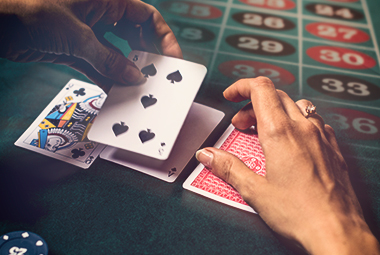
3.) TREAT GAMBLING LIKE OTHER ACTIVITIES
Gambling doesn’t have to be much different from other recreational activities.
I mean that in a few different ways.
For one, you don’t go to the golf course and say, “I must shoot a five under today,” and then expect that to happen by sheer force of will, so why would you think you could will your gambling results to be a certain win?
Much like gambling, golf is a sport that deals in averages and expectation. For instance, you might have golfed a particular course a decent number of times and have an idea what your average is for that course, but on a given day, you will likely shoot a few (or several) strokes over or under on the course.
Much like golf, you can’t change what has already happened in gambling. If you are on the 18th and your goal was to shoot -5 on the golf course that day, but you’re currently carrying Even Par and the hole is a Par 4...sorry, that -5 isn’t happening. There’s nothing that you can do about it.
Unfortunately, while gamblers cannot change was has already happened, they sometimes seem to think that they can, “Change their luck,” people try systems, slot players move to different machines, people try different games, vary their bets, etc...Again, if you’re playing what you can comfortably afford to lose and know the House Edge against you, then all of that is fine. It’s when you start getting into, “Chasing,” territory that you have to look out.
Remember, you can’t change what’s already happened, but you can decide to stop now. If you’re unhappy, or, “Steaming,” with your results...then just go take a break. Maybe even call it a trip. If you still have some of the money that you budgeted to lose, then don’t hesitate to take it and do some other fun activity...maybe go play a round of golf!
One difference between gambling and golf is that the rules of golf govern how well you can do. For example, on an 18-hole course, the lowest technically possible score is whatever -(Par for Course, Often 72) is plus eighteen strokes...though (as a practical matter) your score will never be that good. With that, other than maximum stroke allowances, (course set) there’s no limit to how badly you can do at golf.
If you don’t go chasing losses and make sure not to lose more than you planned to, quite possibly, lose...then you can set a cap at how poorly your gambling trip will go. You can also set, “Stop Wins,” on the other side of that, if you want to, but most people don’t stick to them.
4.) NOT A FAN OF STOP WINS
I’m not a fan of player setting stop wins, unless they are extremely disciplined recreational gamblers, because most people don’t stick to them.
Remember, as a recreational player playing negative expectation games, you are not gambling to win money, you are gambling for fun. If you want to gamble to win money, then you can try to become an advantage player---which, in my experience, is mostly boring and repetitive.
With that, as I said in the other article:
"For every one person who can honestly say, I hit my win goal and quit there are probably fifty who will end up saying, I hit my win goal, and that’s when I should have quit."
In other words, some people will set a win goal and then keep going after that. Either they will end up, “Giving back,” some of their winnings or losing money overall and feeling like idiots for, “Not quitting when they were ahead.”
If you’re ahead and having fun, and you want to keep going, then keep going. You were playing a negative expectation game before and you’re still doing that now. You should remind yourself that you are expected to lose money on every single bet, but keep playing if you’re having fun. Some golfers will golf an extra round, after all, if they are having fun that day.
When should you stop gambling? Well, if the goal was to win, then you should never have been playing negative expectation games in the first place...so your goal should be to maximize fun...but understand how much that fun is expected to cost. Simply put, you should stop gambling when you are no longer having fun.
If you find yourself saying, “Oh, man, I was up $1,000 and could have stopped and now I have given back $200 of it,” then stop. Just because you, “Gave Back,” $200 doesn’t mean you need to give back another $800. If you are questioning your decision to continue playing, then odds are you really aren’t having fun anymore. Go take some of that $800 and do some other fun activity with it!
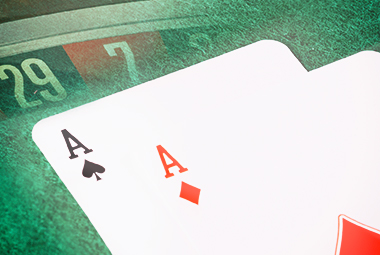
5.) TIME LIMITS MIGHT BE GOOD!
While I am not necessarily a fan of setting, “Stop wins,” time limits might be good for recreational gamblers.
If you can calculate your expected loss (or approximate) per hour and decide how many hours you want to play, then up or down, simply choose to quit playing after that amount of time.
It’s pretty easy for recreational players to do this. The first thing that you would want to do is schedule when you are going to start your gambling day and then plan another event for some amount of time after that. You could plan to go out to dinner, to see a show, to check out the shops, go for a walk around town...basically anything.
The biggest thing (other than losing in the first place) that can lead to chasing is getting sucked into what I call, “The Zone,” and losing all track of time and all sense of perspective. The land casino environment (even booze aside) is designed to cause this to happen.
The good news is that most people have cell phones and most cell phones have alarm applications, so you can set an alarm for when you intend to be done playing. This will require a certain amount of discipline to the extent that you have to be able to say, “Okay, time’s up,” and then go do another activity of some sort.
Obviously, time limits don’t change anything from a mathematical standpoint, but the goal is not to change your odds (as a recreational player, they are against you); the goal is to change your thinking when it comes to gambling. You want to think of gambling as a pastime, so make the amount of time you are going to spend on it finite, as it is with most other pastimes.
If you are scheduled to play a round of golf, for example, that usually takes some range of time to do...usually depending on how bad your party is, or how bad the players in front of you are. However, if you have a 7:00a.m. tee time, then you’re probably not going to be playing the first round until 7:00p.m.
Other activities also have a certain amount of time that they take. For example, you might rent a bowling lane by the hour, you might pay to go horseback riding by the hour. In general, any time you go to do a recreational activity, you have an idea how long you plan to be there. There’s no reason for gambling to be any different.
6.) TREAT ONLINE GAMBLING LIKE A LIVE CASINO TRIP
One aspect that sometimes gets recreational players in trouble with online gambling is how convenient it is. A player can set up their account and link it to some kind of plastic, PayPal or bank account and deposit whenever they want to.
The most positive aspect of online gambling, for recreational players, is convenience.
The most negative aspect of online gambling, for recreational players, is convenience.
With that, you should treat online gambling like you would treat a trip to a land casino. If you have a certain amount of your monthly entertainment budget that you want to devote to online gambling, then stick to that.
That might mean passing up on a few juicy looking offers, but remember, you’re not an advantage player anyway. If you’ve already exhausted your online gambling budget for the month, then you’ll just have to see what sorts of promotions are available next month. There’s usually something going on if you look around enough.
Most online gambling sites also have it set up such that you can set deposit limits on a weekly, monthly or per occurrence basis, so do that if you really need to...but if it has got to the point that you don’t have the discipline to control how much you are depositing, then perhaps you should take a break for awhile instead.
And, as always, if you find yourself not having fun or feeling miserable because you are losing too much or, “Gave back,” money that you felt you shouldn’t have, then take a break for awhile.
I think one other thing that I would recommend to online casino players is to make frequent withdrawals. Here’s the way I look at it:
When you go into a land casino, unless you’re playing with markers/credit, then you bring a particular amount of money in there as well as sometimes a way to access more money. There’s no reason to treat online gambling any differently. When you leave a land casino, then you usually take whatever you have left of what you brought (or that plus winnings, if you won) with you. You don’t tend to let the casino hold your winnings forever...why would you do that?
With that, if you want to gamble online, then don’t be afraid to limit the amount of time that you spend doing that. When you’re all done, simply request a withdrawal. Most online casinos won’t make a habit of refusing new deposits just because you have a pending withdrawal, so if you want to play again on a different day, then just make a new deposit.
Either way, there’s generally not much of a reason to leave your money sitting there forever. Also, if you have to do different things to verify your account prior to withdrawing, then those will already be done in the event that you hit a big win and want to withdraw right away.
7.) HAVE FUN AND ALWAYS MAKE QUITTING A DEFAULT POSITION
If you’re tired, quit.
If you’re bored, quit.
If you’re agitated with your results, quit.
Negative expectation gambling is supposed to be a recreational activity and recreational activities are supposed to be fun. If you’re not having fun, then you need to ask yourself, “Why am I still doing this?”
I can tell everyone out there what I am awful at---and that’s basically any form of art. I’m terrible at drawing, painting, crafts, clay stuff (I don’t even know what doing clay stuff is called) and am pretty much more inept than your average three-year-old when it comes to anything artistic.
I guess I could get better, but I’m honestly so poor at it that I wouldn’t even enjoy the process of trying to improve.
Can you guess what I don’t do as a recreational activity?
Similarly, one activity that I do enjoy is playing Chess...but, man, I suck. I mean, I am absolutely terrible. I will download the Chess.com app for my iPhone and play several games at a time, but it’s only a matter of time before I start to become flatly angry with how poorly I play.
Don’t get me wrong, I have fun my first several games, even when I’m losing. I’ll look at the analyzer that tells me how my position has improved or declined (it usually declines because of a move I make as opposed to a stellar move by my opponent) and try to figure out what I tend to do wrong. I’ll study it for a bit. I generally won’t make the same mistake twice within a few games.
But, after enough losses, I get furious and just start shoving pieces all of the board and playing worse. It’s like going on a tilt in poker. I become so much worse than I normally am...and I already suck! Of course, that results in more losing, which results in more anger and it’s just a vicious cycle.
Until I quit. Why do I quit? Because, much later than I should have, I realize that I am no longer having fun.
Unlike Chess, the House Edge on a game (assuming you make the same bets) doesn’t get better or worse based on whether or not you’re, “Steaming,” but your decision making does. You might decide to start making huge bets in an effort to catch up in order to improve your mood, perhaps much bigger bets than you would normally be comfortable with.
Remember: Recreational activities are supposed to be fun. However, many recreational activities are also going to be frustrating, from time to time.
Being frustrated with your results is not a problem, but how you handle that frustration can be. You might start making the wrong holds on Video Poker, for example. You might start chasing your losses with bigger bets, or betting on higher edge long shots (that you normally wouldn’t) in the hopes of winning a bet at huge odds.
And...that’s why:
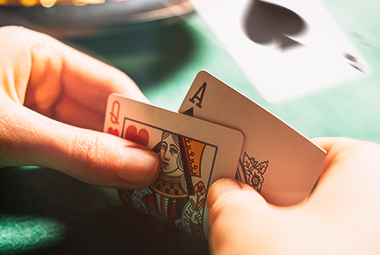
8.) THINK ABOUT QUITTING WHEN YOU’RE HAVING FUN
Obviously, that seems odd and having a ton of fun is often going to correlate to winning, or hitting a huge payout, but hear me out on this one.
You will recall that I’m not a huge fan of setting win goals for the reasons that I stated above, but at the same time, winning at a negative expectation game or, “Going on a heater,” can cause something of an adrenaline high. You can definitely ride that high out by doing something other than gambling; all you have to do is walk away.
The problem that some people have with winning is that they want to chase the, “High point,” of that adrenaline rush, which is often going to correlate to when their stack/credits was at its highest amount. However, you need to remember that you are playing a game where you are expected to lose. Just because you’re ahead doesn’t change the fact that every bet you are making is accompanied by an expected loss.
If you end up taking a few losses and you start to feel yourself coming down from that high, remember, chasing wins is just as psychologically problematic as chasing losses. In fact, relative to your highest chip stack/credits you have lost.
Lifetime is all one big session.
If you buy-in for $1,000 and get your total up to $2,000, but then, “Give back,” $200...while you might be up for the session and have won $800 overall, you have still lost $200 compared to where you were. You could have left with that, but don’t beat yourself up over it...and if you think you are still clear-headed and making the gambling decisions you normally would, keep playing if you want to. Just don’t expect to get back up to $2,000 on the table.
If you are not clear-headed and find yourself setting the goal, “Well, I just want to get back to that $2,000 I had before,” then you should probably quit. At least, you should probably take a nice long break until your emotions have restabilized and you are clear-headed again.
Don’t worry. The games will still be there when you feel like coming back. Who knows? If you go off to do some other activity, then you might mull the matter over and decide that an $800 overall win is enough and you should just go ahead and end it on a high note.
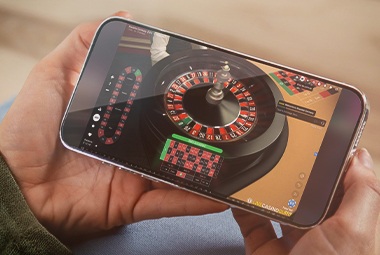
9.) DON’T BELIEVE IN BETTING SYSTEMS
Betting systems, by definition, are goal-oriented. If you are playing a negative expectation game in the first place, then you should not be goal-oriented because you are not expected to win. Because you are not expected to win, you are setting a goal that you are not expected to achieve.
However, if you think that using one system or another is a fun way to gamble, and you are going to gamble within your means, then have a blast.
Some players simply want to try to, “Let it ride,” until they hit a huge win and don’t mind mostly losing small initial bets in the hopes of taking down a big score. I would encourage such people to remember that a loss of $160 (even if your starting bet was $5) is still a loss of $160 because you could have taken that money and quit, but you hopefully know what you are doing.
Some players don’t mind risking huge amounts (potentially) in the hopes of racking up many small wins. Once again, as long as you are making an informed decision, having fun and don’t believe that these systems cause an expectation of winning, then go for it.
Just remember, as with anyone else, don’t risk more than you would mind losing and always default to quitting if you are no longer having fun.
CONCLUSION
Anyway, that does it for my pragmatic advice for negative expectation gamblers. I might come up with some more stuff for a future article, but that seems pretty good for now.
I can’t promise that any of this advice will be helpful to you, as it certainly won’t be helpful to everyone, but I hope that it helps some people out. Do you have anything that helps you that I didn’t mention? Please let me know in the comments!
Comments
good stuff
Gamblers know the house has an edge, so you can possibly say maybe they don't need to know the exact math. Sure, some games are better than others on that edge, but players eventually learn the awful ones albeit maybe the hard way.
where they get dumb is delusional thinking because, wait for it .... they want to keep playing. They then hedge their bets. They find or dream up systems. They listen to slots professors.
Thanks for the compliment!
It's kind of funny because slot players seem to get ignored in all of this, but when it comes to thinking that certain things are short-run, "Due," slot players are probably the most likely category of players to think in such a way. Good foreshadowing on the upcoming Slot Professor article!



